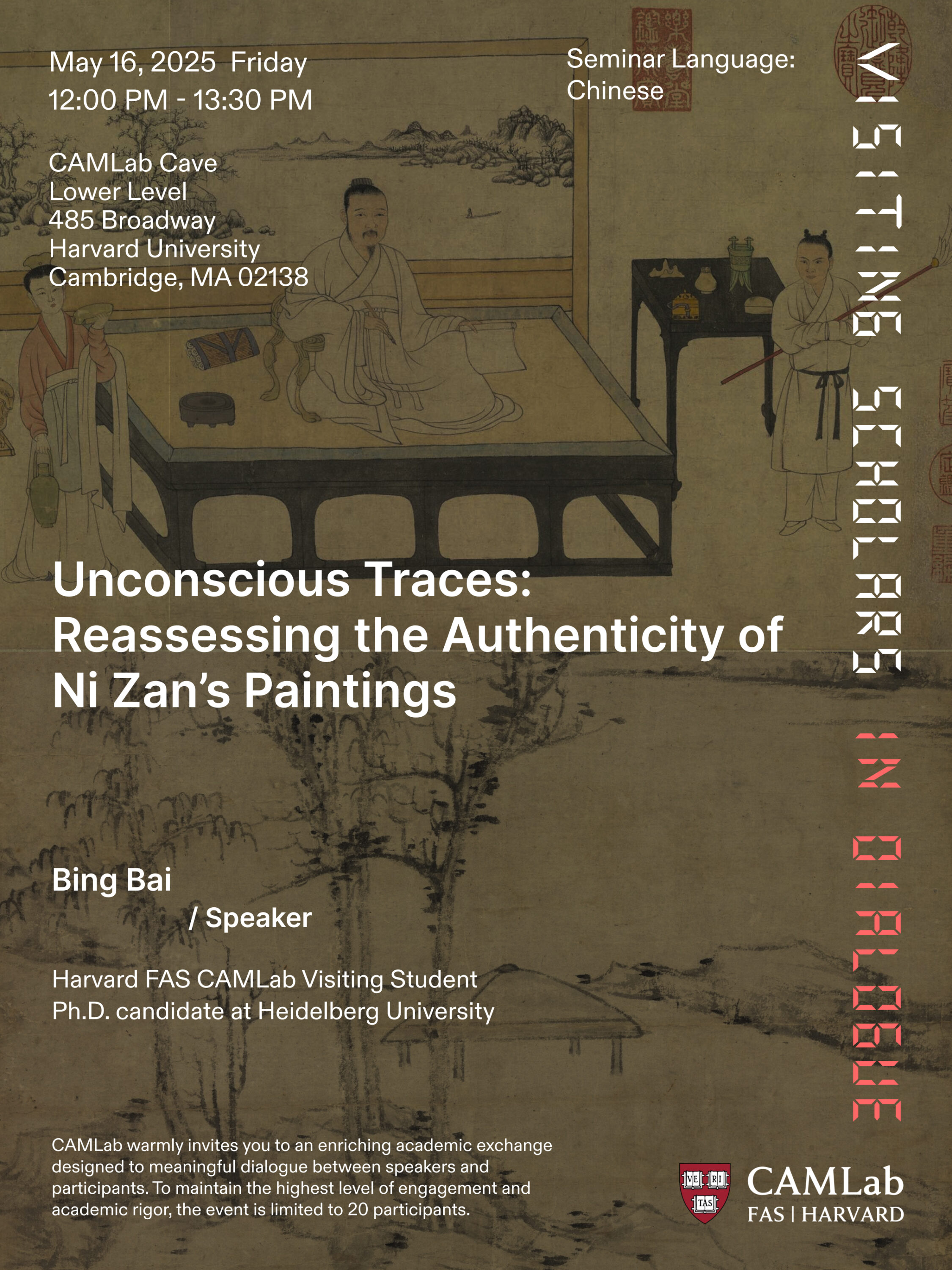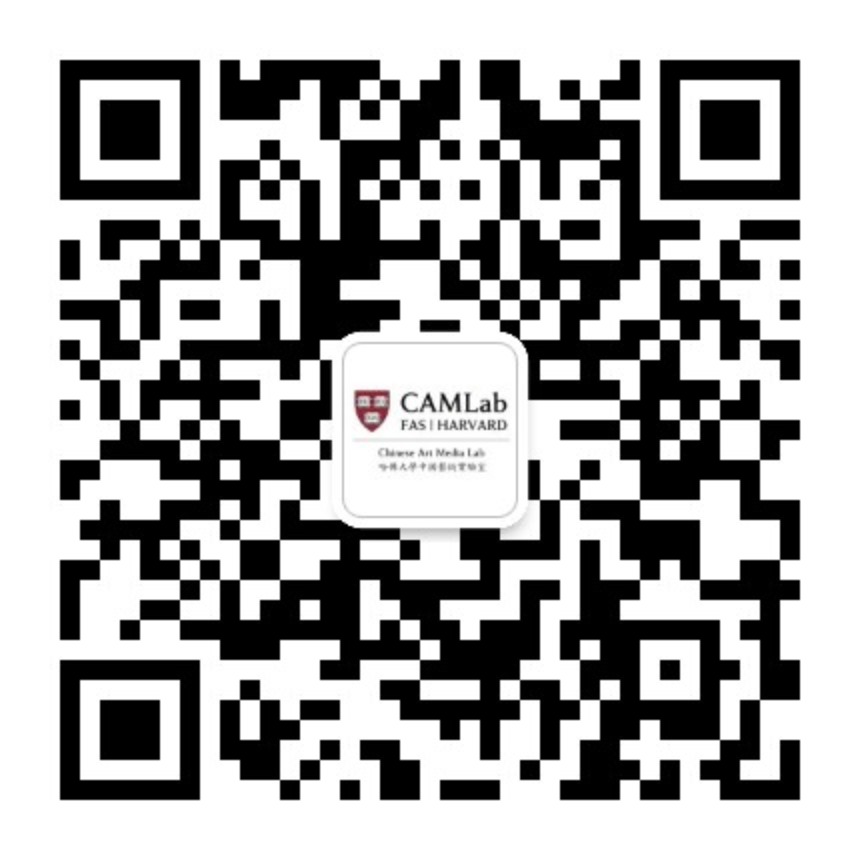May 16, 2025 (Friday)
12:00 – 13:30 PM ET
Lower Level Auditorium, 485 Broadway, Harvard University
Abstract
Italian historian Carlo Ginzburg proposed the concept of the “evidential paradigm,” emphasizing that in fields such as art authentication, detective reasoning, and psychoanalysis, true insight often arises not from universal rules, but from the keen perception of minute details, marginal clues, and unconscious gestures.
In the case of the paintings by Ni Zan, a Chinese painter during the Yuan and early Ming periods, prominent motifs and brush techniques—such as the zhedai (折带) texture strokes—are relatively easy to imitate. What most distinctly reveal his individual stylistic imprint, however, are precisely those seemingly insignificant, habitually repeated details. These “unconscious traces” are the hardest to replicate and may serve as critical clues in determining authenticity. This lecture invites the audience to step into the role of an “art detective” and reexamine the authenticity of several works attributed to Ni Zan through close analysis of such subtle features.
Speaker Bio
Bing Bai is a Harvard FAS CAMLab visiting student and Ph.D. candidate at Heidelberg University. His research interests include Chinese painter Ni Zan’s artistic practice, daily life, and social networks.
Event Information
- Free and open to the public
- May 16th (Friday)
- 12:00 – 13:30 PM ET
- This is an in person event.
Please note
Advanced RSVP required.
The event will be conducted in Mandarin Chinese.
May 16, 2025 (Friday)
12:00 – 13:30 PM ET
Lower Level Auditorium, 485 Broadway, Harvard University


